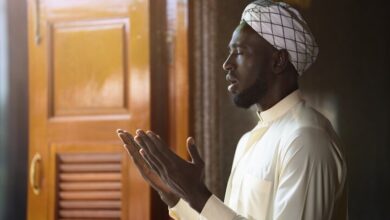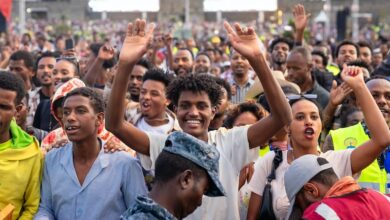Only 1000 Christians remain in extremist controlled Gaza
In the past six years the number of Christians in the Gaza Strip has plummeted from 4,500 to just 1,000. Governed by Hamas, the internationally recognized terrorist organization, Christians have long been the target of the extremist organization.
The harsh living conditions under which the 1.8 million residents are living, also contribute to the plunge according to the pastor of the territory’s sole Catholic church.
Gazans “live like it’s an open air prison since we can’t leave. We can’t visit relatives, look for work, medicine or good hospitals on the outside,” Fr. Mario da Silva told ACI Prensa.
The Gaza Strip is a 141 square mile area part of the Palestinian Authority, located to the west of Israel and bordered by Egypt on the South. Since 2007, it has been ruled by the Islamist movement Hamas.
Since Hamas came to power there, Israel and Egypt have conducted an economic blockade of the Gaza Strip, restricting the flow of persons and goods in an effort to limit rocket attacks on Israel launched from the territory. Though when a blockade is mentioned, it is usually only ever mentioned as being implemented by Israel. Egypt’s blockade is the one that controls goods, good and medical supplies as the Arab nation fights the attempt of Hamas to smuggle in weapons for its war against the Jewish state
Hamas regularly launches missiles from the grounds of schools and hospitals that makes Israel’s ability to respond difficult and that fact is often not reported in western media.
Fr. da Silva, a priest of the Institute of the Incarnate Word, recalled that when he arrived in Gaza in 2012 “the situation was already very difficult. Over time, you would hope the situation would get better, but it’s only gotten worse.”
He related that inhabitants have only three hours of electricity a day, and there is a shortage of drinking water.
According to Wikipedia, “The Gaza electricity crisis is a result of the tensions between Hamas, who rules the Gaza Strip, and the Palestinian Authority/Fatah, who rules the West Bank over custom tax revenue, funding of the Gaza Strip, and political authority. Residents receive electricity for a few hours a day on a rolling blackout schedule.”
Israel currently donates 50 percent of Gazas energy and runs a power plant which is often targeted by Hamas, producing additional energy.
Several years ago, when Israel evacuated settlements in Gaza in a peace deal mean to end the barrage of missiles hitting Israeli cities, the Gazans were left with water and electrical infrastructure, hydroponic agriculture farms and gleaming factories. Within weeks, Gazans, led by Hamas, had completely destroyed the infrastructure. Middle East experts say it was just one of the ways Hamas keeps Gazan residents in poverty, by destroying any ability of self-sufficiency and making residents prisoners of the terrorist group.
Today, most Gazans are unemployed, Fr. da Silva says, and those who do work live on “about $150-200 a month.”
The billions of dollars in aid from Western nations, including the United States, is meant to help Gaza residents. Sadly, 95 percent of it is pocketed by the region’s leaders or spent on weapons of war against Israel.
“It’s really a prison. People don’t have any money and the situation is terrible. There is widespread poverty.”
The harsh conditions imposed on Gaza by its leaders has led to the exodus of Arab Christians.
“Every year Christians have one permit to leave and visit the holy places on Easter and Christmas,” and many of them never return, explained Fr. da Silva.
In order to stem the tide, the priest’s Holy Family parish is working with 12 religious sisters, of the Servants of the Lord and the Virgin of Matará, the Missionaries of Charity, and the Sisters of the Rosary congregations.
“We’re doing two things: first, preaching Christ and the importance of Christians in the Holy Land; preaching the importance of forgiveness and of carrying the cross is what we most try to do.”
The second form of aid is material assistance projects, he said: “For example, with the help of institutions such as the Pontifical Mission or the Latin Patriarchate of Jerusalem, the Church tries to give work to more that 30 young people so they won’t leave, because they are mainly the ones who leave.”
He noted that the parish also cares for adherents of other religions: “The Christian community is very small and there are 2 million Muslims. They are also in great need. We have always opened the doors of our schools or our church during times of war to take in those seeking refuge.” In addition, schools controlled by Christians are usually left alone when Hamas leaders are looking for locations in which to hide missile batteries from which to fire rockets into Israel.
Today, Hamas terrorists have turned their attention away from Christians in Gaza to what they see as a greater threat.

“There is not a very great persecution of Christians,” any longer the priest said. The treatment by the previous Fatah and current Hamas leadership caused most of them to elave. “Though there is now a lot of fear with the news that the Islamic State has arrived, coming from the Sinai Peninsula, in Egypt … There have already been threats. There is also fear of the Salafist groups who are coming in from the south,” he said.
“In fact, when we have problems with Muslims who want to do something against the church, we’ve asked the government to protect us and they have done so,” he added.
In fact, the greatest fear of all Gazans be they Christian or Muslim, is that a war is soon to begin in Gaza. The war, though, will not be between Israel (which does all it can to avoid civilian casualties) but between Hamas and ISIS which is known for targeting civilians specifically.
In April the joy of Easter was tinged by a decrease in the permits given by Israel Gazans to visit holy places in its territory, Fr. da Silva said.
“It was also very sad because Israel always gives permission for Christians so they can visit the holy places for Christmas and Easter,” but this year they only gave 300 permits instead of the 700 they usually grant. These permits were “for children and the elderly, who are really the people who can’t go out by themselves. Very few people actually went,” he lamented.
Israel made the decision to lower the amount because of ISIS militants who threatened to get into Israel on fake papers.
Nevertheless, “there was joy because Christ has risen and because our salvation comes from that, which is much more important than our material life; but on the human level it was a very sad Easter,” he said.
“Pray much for this, which is what we mainly ask for, because only God can change the situation we’re going through in these countries here in the Middle East,” he concluded.
–Wire services with additional reporting from Metro Voice.






